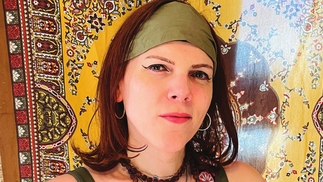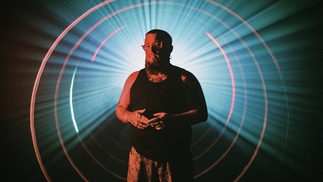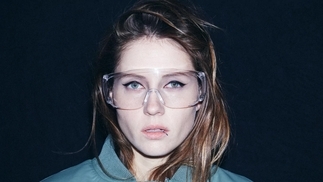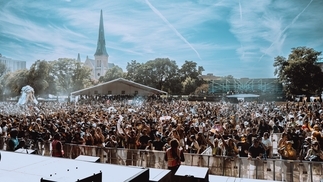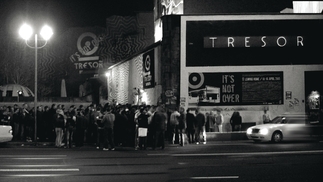TODD TERRY: GAME CHANGER
Jungle Brothers 'I'll House You' – produced by Todd Terry (Idlers, 1988)
The JBs essentially added a rap to Todd's early house classic 'Can You Party' to create the first hip-house hit, 'I'll House You' — bringing the house and the hip-hop worlds closer together...
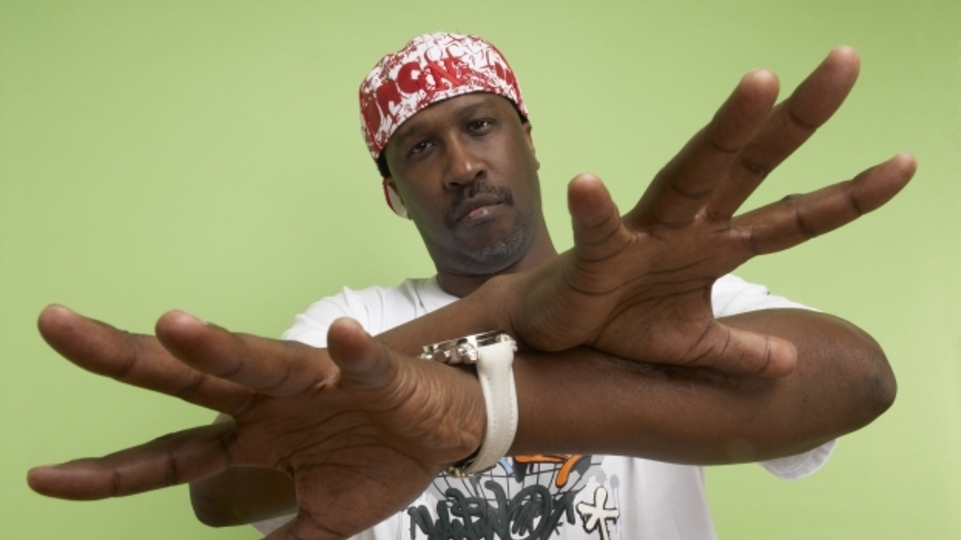
Todd Terry started DJing around his home city of New York in the mid-'80s. “When I started — around '84, '85 — I was just doing random parties, weddings, Sweet Sixteens, a lot of different parties — anything I could get my hands on,” Todd tells DJ Mag.
“I just wanted to DJ at the time, so me and my friends would load up speakers and a system and everything, and stress ourselves out just so that we could get to this party — and DJ. Rain, snow — whatever we had to do, we made sure we got to the party.”
Todd was into hip-hop, electro and 'freestyle' breakbeat stuff back then — “John Davis 'I Can't Stop', 'It's Just Begun' [by the Jimmy Castor Bunch] and all that kinda stuff” — and explains to DJ Mag how he and his pals used to cut those records back and forth.
“It was more like a b-boy style of thing,” he says. “Then we would throw in some popular records by Prince or something like that for the parties too, so we would kinda mix it up — but I was definitely more into the b-boy style.”
With assorted pals, he'd hang at NYC clubs like Roseland and hang out around the DJ booth wondering what records the guy was playing. “My friends were like, 'You should try to make records like this', and I was like 'I dunno, it sounds kinda expensive', cos they had symphonies and everything, it was more like those Salsoul records,” Todd says. “But then as electronic music came out, I figured that I could figure that out — I just had to learn how to do it.”
Todd says that his early productions were “horrible” — “I was trying to do too much at once” — and it took him a while to fix tracks up a little better. “I was doing more breakbeat stuff, electronic drum machine stuff with samples and basslines — I was just into the raw sound of everything,” he says. “I tried to make everything like a breakbeat.”
He first heard house music when his friend was over and jumping around to some new music he had on cassette. “I was like, 'It kinda all sounds the same to me', cos I was used to a breakbeat style,” Todd thought at first. “But I knew that there was club music that was like that, and he was saying 'You should try making records like this' — you do a lot of hip-hop, you should do this'. I was like 'I'll try it', and one of the first records I did was 'Party People'.”
Todd was already semi-successful doing freestyle music (“cheesy songs with hard-assed beats”), but when he started doing house music he took it to another stratosphere. 'Party People' in 1987 — released under the name Royal House — was one of the biggest club records of the year, and yet he tells DJ Mag he was just joking around when making it, introducing the memorable, stuttering “party people” refrain just to demonstrate how easy it was.
“I didn't really understand what was going on — I was just doing it,” he says of his rapid rise to success. “It was like, 'I'll just do another one of these — what's this, what's that?' It was a free-for-all.”

Todd was knocking about with a variety of music guys in the late '80s, including a nascent hip-hop group called the Jungle Brothers in New York at the time. In a recent interview with DJ Mag, Armand Van Helden speculated that the JBs probably went to a house club and ended up thinking that they wanted to do a house track too. Todd confirms this.
“They was just hanging out, they came to a house club and came back and was like, 'We've got to do a house joint with you',” he says. “At the time I used to hang out in Tony D's basement producing Whodini, Dynasty & Mimi, Slick Rick & Doug E. Fresh and all that kinda stuff, I was working on stuff like that as well as some of the house tracks. They heard the 'Can You Party?' record and they was like, 'Yeah, we wanna put a vocal to that'.”
Todd didn't think that idea had any legs at all at first. “I was like, 'Come on man, that's ridiculous, that's not gonna work, what are we gonna call it? Hip-house or something like that?'” he laughs. “We was joking around.”
“I went somewhere for about a week and when they came back they were like, 'We've got to play you this joint',” Todd continues. “They played it to me, and it was 'I'll House You'. I was like, 'We've got to tighten some things up here', it was a mess. They then went back and did it again and I was like, 'This is better', the first time they was just bugging out, but the next time when they did it again it kinda really worked out.”
The Jungle Brothers had essentially just put some rhymes over the top of Todd's 'Can You Party' cut, with a bit of jiggery-pokery to make the lyrics fit better. “Yeah, they took my original track and they took the bonus beat and the “Can you party?” bar and cut back and forth,” Todd recalls.
“We just cut back and forth from that, so it was like two pieces of 'Can You Party' — then there was all the screaming and all the other stuff that was in there, some of the drum roll and that was it. They kept it really bare. It was done in like a couple of days. The next thing we know, it was a blown-out smash — as soon as people heard it.”
The way Todd had made his early tunes was by sampling a cassette of various loops and beats. He didn't know where they came from, and didn't really know or think that there were artists behind them. “That's where I got everything from, that one cassette,” he says.
“I didn't know who Reese & Santonio was (Todd's 'Back to the Beat' track sampled Kevin Saunderson and pal's 'This Sound'), I didn't know who Marshall Jefferson was, Derrick May... all these guys, I didn't know who they was, but that's why they had a problem with me cos I sampled all their records and I didn't know whose was who.
I learned house music as I was doing it. I didn't really get it at first. I got it more as I was going to the [Paradise] Garage, then I started to really understand the fusion of those rhythms and that music and that club style.”

The “Can you feel it?” sample was lifted direct from the Mr Fingers (Larry Heard) record of the same name, while the stabby keyboard bridge came from Marshall Jefferson's 'Move Your Body' classic. But as far as Todd knew, they were just random samples on a cassette to be plundered for new tracks.
“The Marshall Jefferson sample in 'Can You Party?' and 'I'll House You' was one of the biggest parts of the record, a lot of people used that stab such as Technotronic and Samantha Fox [laughs], you could go down the line — it was just like a popular riff for house music,” he says. “I remember running into Marshall Jefferson the first time and going 'Yo man, I owe you money' — I didn't know it was him.”
The hatchet is well and truly buried now, with Todd and Marshall frequently headlining the same house events. The cross-pollination was typical of the intersecting between different club sounds in those early days of sampling — before copyright issues fully took hold.
Todd begins talking about the basic set-up he had during the production of this particular Game Changer. “When we was putting together 'I'll House You', we only had a 16-track digital recorder, and I had my [Casio] RZ1 drum machine and a SDD-2000 Korg [sampler], and that was the thing triggering the samples,” he says. “It was really simple. I didn't do too much to it, but the loud beat and the loud sample made it work.”
When 'I'll House You' was finished, everybody was jumping up and down in the studio, Todd recalls. “But I was sitting there really sceptical about it. I was like, 'How's it gonna work, this rap thing on top of my beat?' Basically that's how I was looking at it, I was used to a different way of looking at it, and after a while I was like 'OK, this is probably gonna be the craziest thing ever', cos everybody was in love with it.”
'I'll House You' may have been a fun party record, but it acted as a catalyst in the New York club scene to bring together the hip-hop and house communities. For hip-hop headz such as Armand Van Helden and many others, it was the record that brought them into house music. Properly. “That definitely had to be the one to bring them together,” says Todd. “What helped was I was brewing with all my other tracks that did that such as ‘Back to the Beat’ and ‘Can You Party', fusing it together — but ‘I’ll House You’ just took it to another level.”
House had been kick-started by black gay DJs like Frankie Knuckles and Larry Levan, so it was perhaps inevitable that those two marginalised communities — black and gay — were brought closer together. DJ Mag asks Todd if there was any resistance in NYC from black guys getting into house music, as it was largely seen as a gay thing at first. “A couple of my friends would not step into a house club, they’d say ‘We’re not going to those gay-assed clubs, we’re not doing that’,” Todd replies.
“I was like, ‘Come on man, listen to it, they’ve got all different types of music, they’re bugging out’. I brought a couple of my friends along one time and they didn’t like it at first, but after that they were like ‘It’s cool, I get it’. Cos it was a mixture of music.
We went to North Moore, we went to Roseland, they played hip-hop, they played everything, it wasn’t just one steady groove like today, where everybody plays the same type of thing. I was brought up into playing reggae, funk, soul, freestyle, house, disco, playing a little bit of everything.”
Todd was just kidding when he made up the term 'hip-house' to describe 'I'll House You' — where hip-hop meets house. But he was totally onto something and a deluge of US rappers started making hip-house tracks in its wake — much as has happened again recently with hip-hop/grime/R&B artists like Busta Rhymes, Snoop Dogg, Dizzee Rascal, Rihanna and so on.

'I'll House You' might not have been the first bonafide hip-house record — Beatmasters featuring UK female emcees Cookie Crew preceded it by a couple of years — but it was the first to gain significant traction.
Cuts by Rob Base & DJ E-Z Rock ('It Takes Two'), 'Turn Up the Bass' by Tyree Cooper featuring Kool Rock Steady, tracks by Fast Eddie, Deskee, Monie Love, Queen Latifah and so on followed as the Venn diagrams of urban and dance intersected for a while.
“It made a cool factor, it was mixing a lot of worlds together,” says Todd, sagely. “I always thought I was the person that made up the word ‘fresh’ too, but now I’m not sure [laughs]. My line back in the day was ‘That’s funky fresh’.”
Todd's career was pretty wild from this point onwards. “Money, hit records, walking into clubs, drinking... just mayhem,” he recalls. “My career at that particular time was pretty much a mess. I didn’t really figure it out, my main thing was just making money and getting cars and women.
I didn’t really think about anything else, that’s what it was all about. I gave my mother money and went with the glam, I didn’t think about a future, saving money, pensions and kids and all that. I didn’t have that happening at the time, so I was just like wilding out. I think it took me five or six years to really get a grip on it, because there was so much going around.”
So proficient and successful was Todd that fans started referring to him as 'Todd the God'. How did this make him feel? “I was mesmerized by it,” he admits. “To me, it just put the pressure on the projects. Now everything had to be really good, it had to have something to it.
I always try to put something flavourful into each track I do, to try to keep the ‘God’ image inside a record, and I don’t pull it off all the time — I don’t think anybody could. You just do what you do.”
Todd would go on to cement his place as a house music original, explore other styles such as techno and drum & bass, and is now doing a Latin album — as well as working on “a TV reality DJ show-type of thing”. The Jungle Brothers, too, are still going after a long and illustrious career.
But who would Todd still most like to work with? “Prince,” he says, without hesitation. “I think it would work. A hard beat, and he does his thing on top of it. That would be interesting. Call him up!”
